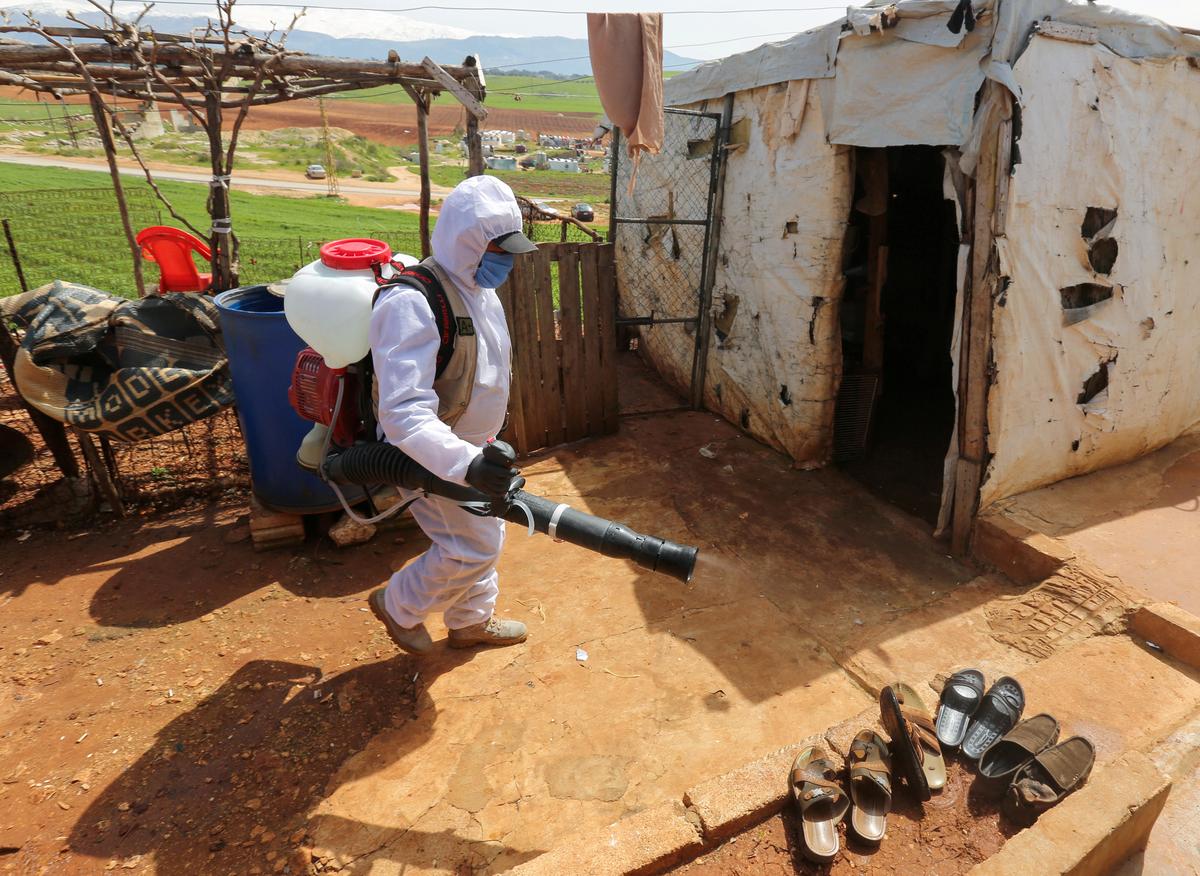
AMMAN (Reuters) — Syria’s health ministry said on Sunday that a woman who died after being rushed to hospital for emergency treatment was found to have been infected by coronavirus in the country’s first officially reported death from the disease.
Syria also said its confirmed cases rose to nine from an earlier five cases, but medics and witnesses say there are many more. Officials deny a cover-up but have imposed a lockdown and draconian measures including a nationwide night curfew to stem the pandemic.
The moves to shut businesses, schools, universities, mosques and most government offices, as well as stop public transport, have spread fear among war-weary residents.
Several cities saw panic buying, with residents saying they saw food shortages and a surge in demand that pushed up prices ahead of the start of the curfew.
The United Nations says the country is at high risk of a major outbreak because of a fragile health system devastated by a nine-year war and lack of sufficient equipment to detect the virus, alongside large numbers of vulnerable people.
The World Health Organization has warned that the country has a limited capacity to deal with a rapid spread of the virus.
On Sunday, the army announced an end to a call-up of army reserves. It has already ended conscription in what military defectors said was an attempt to prevent the spread of the virus among the rank and file.
The government also banned movement of people between governorates. Security forces manned checkpoints around provincial cities and only allowed army vehicles and essential services to pass, witnesses said.
Opposition figures and independent politicians point to Damascus’ strong ties with Iran, the worst affected country in the region, as a source of possible contagion.
They say the virus is also being transmitted by members of Iranian-backed militias who are fighting alongside the Syrian army, as well as Shi’ite pilgrims who visit shrines in Syria.
Western intelligence sources say Iran’s proxy Shia militias continue to cross the Qaim border crossing between Iraq and Syria, where they have a strong presence across the country.
Senior Syrian army officers have in recent days taken leave of absence and been ordered not to mingle with the Iranian-backed militias, military defectors say.
Syrian officials said Damascus airport has halted commercial flights, and the government has also ordered the closure of its main border crossings with neighboring states.
Thousands of Shia pilgrims have been arriving in Syria to visit the Sayeda Zainab shrine in Damascus, a neighborhood that also houses the main headquarters of the Iranian-backed militias.
Iraqi health officials confirmed on Sunday that returning Shia pilgrims from Syria have tested positive for the coronavirus, raising concern that such travel could be a source for a wider spread of the disease.
Reporting Suleiman Al-Khalidi in Amman. Additional reporting by Samar Hassan in Cairo, Kinda Makieh in Damascus and Ahmad Rasheed in Baghdad; Editing by Andrew Cawthorne, Giles Elgood and Daniel Wallis
Image: A worker from the municipality sanitizes a Syrian refugee camp, as Lebanon extends a lockdown by two weeks to combat the spread of coronavirus disease (COVID-19) in Marjayoun, Lebanon March 23, 2020. REUTERS/Aziz Taher/File Photo




